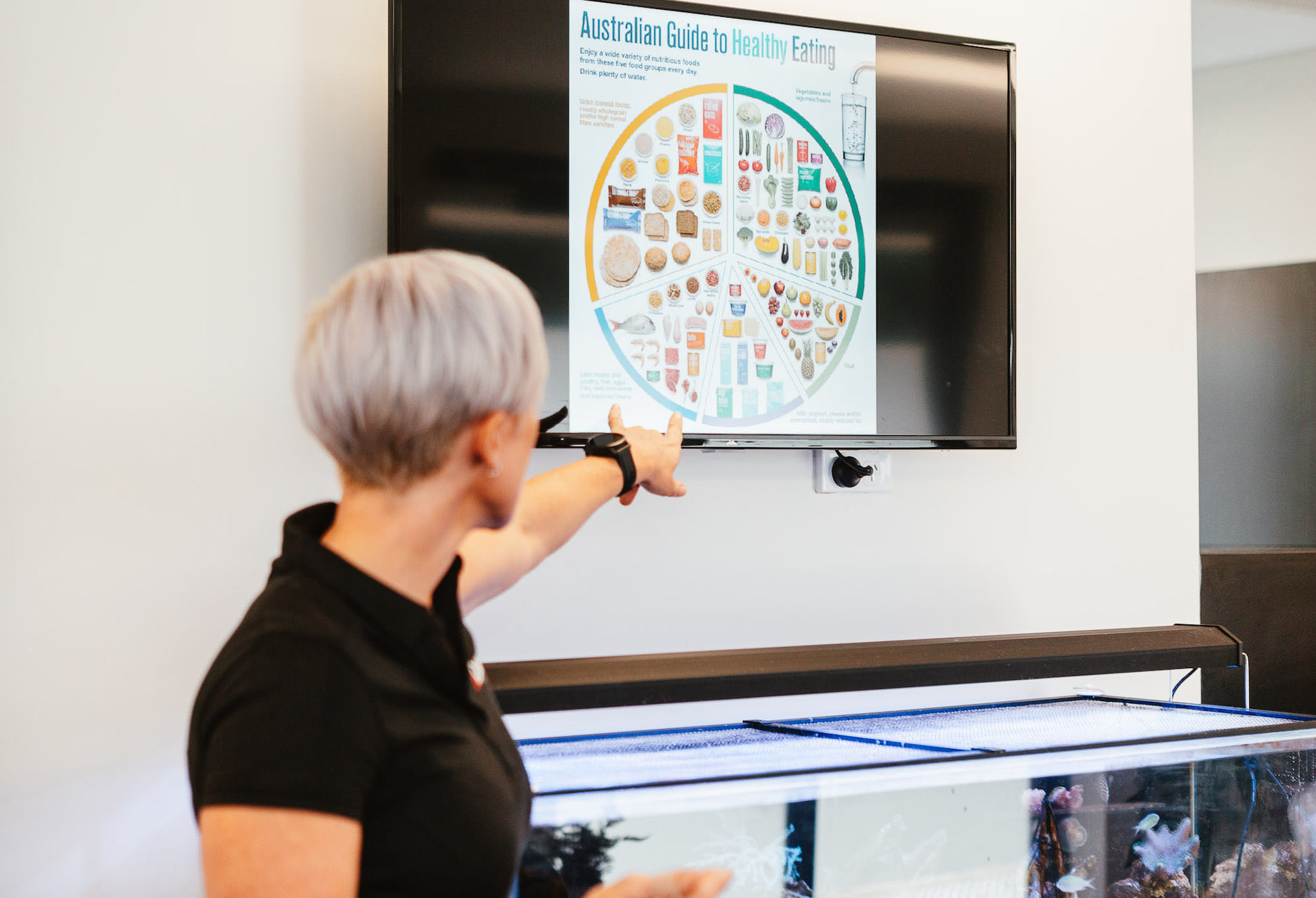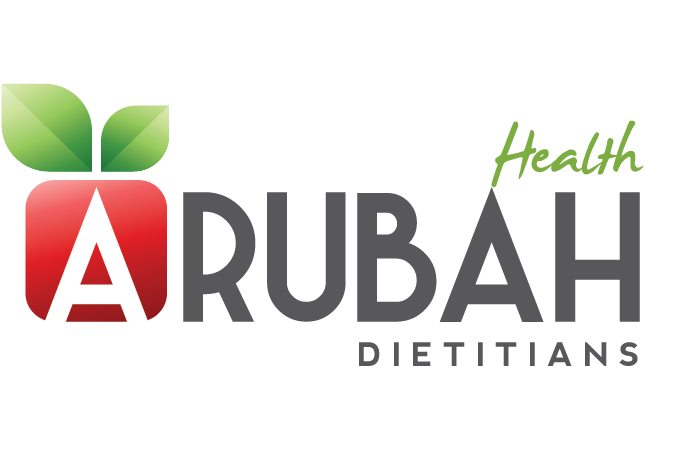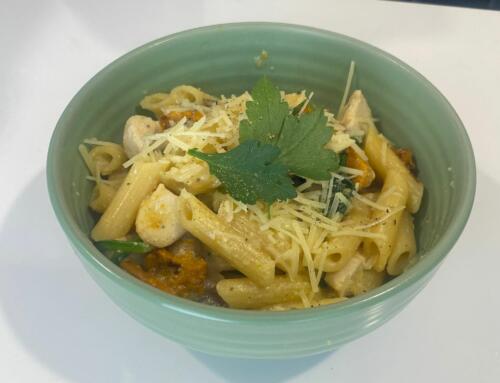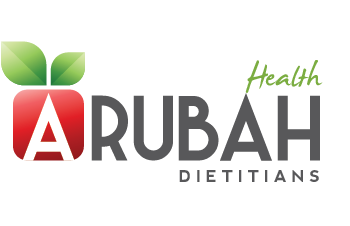March 19, 2021
The Importance of Portions
Food is something that is so important to our daily lives. It cultural, it’s social and it’s key for survival. Overtime, however, food has become more accessible, more convenient and more affordable than it ever was and as a result we are now eating more as a society than we ever had. So we are going to provide you with a simple guide on how to portion your meals.
Portioning your meals properly means you are eating the amount of food that you need, while also making sure we get a variety of nutrients that our body needs. The exact amount and types of foods a person needs varies, however, there are some general guidelines that we should all be trying our best to stick to, based on the Australian Guide to Healthy Eating, to ensure we are providing our bodies with all the nutrients it needs.

We’ve provided you with a simple guide on how to portion your meals
Fruits & Vegetables
We all want to be aiming for 1/2 a plate of veggies for at least 2 main meals a day (5 -6 serves) and 2 pieces of fruit throughout the day (2 serves).
Why?
They are full of fibre! Most Australians aren’t getting much fibre, in fact most people are only getting 65-80% of daily needs (recommendation is 25g for women and 30g for men each day).1-2 Fibre is super important for gut health and having a low fibre diet can increase the risk of developing some chronic diseases and cancers such as diabetes, coronary heart disease, colorectal cancer and diverticulitis.1 With everyone on the gut health train, before trying kombucha and every other fermented product on the market, the main thing that will help us improve out gut health is fibre!
Veggies & fruit also have a host of vitamins and minerals which can help to keep our skin, eyes, teeth, and gums healthy and they can also help to fight infection and promote wound healing.3 Fruit & veggies also have antioxidants in them which fight cell damage and help prevent the development of diseases such as heart disease, cancer, Parkinson’s disease and Alzheimer’s disease.3 Aim of the game when it comes to veggies & fruit is colour and variety. The more colour and variety, the greater the array of vitamins, minerals and antioxidants you are getting.
Meat & Protein
We all want to be aiming for ¼ plate of meat or protein source such as eggs, beans, lentils, chickpeas, nuts, tofu
Why?
This tends to be where we go wrong. High protein diets are often marketed like crazy so that everyone will buy the protein shakes, powders and supplements. Truth is, the average person only needs 15-25% of their energy intake from protein.4 Protein is still super important and we do need to make sure we are meeting our needs to keep up strong, healthy and functioning at our best. Ensuring you are having ¼ plate of protein at each meal and enjoying snacks such as dairy, eggs and nuts will provide you with enough to meet your needs of protein and nutrients such as iron and zinc.
Some proteins, especially processed or untrimmed meat, also have a high percentage of saturated fat which does increase the calorie content of these foods. Therefore, having too much can lead to weight gain and high cholesterol. By portioning your meat to a ¼ of a plate and choosing leaner meats over fatty/processed meats more often, you are more likely to be able to maintain weight overtime while still getting the protein your body requires.
Carbohydrates
We all want to be aiming for a ¼ plate carbohydrates such as rice, pasta, potato, bread, oats, quinoa.
Why?
CARBOHYDRATES ARE NOT THE ENEMY. They always get a bad rap. Carbohydrates are our bodies preferred source of energy and we want to be aiming for more than 50% of our daily energy intake.4 Overeating carbs will lead to weight gain but that’s the same with overeating protein and any other foods. Our food supply is often very heavy carb base which is why people think it will lead to weight gain but it won’t if we eat in the right portions. Carbs are actually the only source of energy our brain can use and as a result, low carb diets can lead to fatigue, brain fog, reduced concentration, focus and dizziness.5
Carbs are also another really important source of fibre so by restricting carbs it can lead to poor gut health, constipation and increased risk of chronic diseases. The general rule is that the most processed carbs have the least amount of fibre so you want to be getting as close to the original source as possible. Therefore, aiming for wholemeal breads, wraps and pastas and brown, red or wild rice will give you the biggest bang for your buck in terms of fibre.
Fats
We want to be aiming for 20g or 1 tablespoon of unsaturated fats such as vegetable oils, nuts and avocado.
Why?
Unsaturated fats are ‘good’ fats that are super important when it comes to our health. They can increase our good cholesterol, keeping the bad cholesterol at bay and they can also be protective against heart disease. Our best source of ‘good’ or unsaturated fats includes most vegetables oils (not coconut or palm oil), avocados and nuts. This is why we should aim to include unsaturated fats in our diet every day.
It’s important to note that fat does have the highest calorie content per gram (9 calories) in comparison to protein (4 calories) and carbohydrates (4 calories) which is why we have to be extra careful to keep our portion sizes in check to avoid weight gain. We want to be getting about 20-35% of our energy intake from fats.4 We should always aim to choose unsaturated fats, however, it is okay to have saturated fat in moderation (butter, deep fried food, cakes, biscuits, cheese) as long as we don’t go overboard and try to stick to the 20g/1 Tbls of a fat source per meal.
Helpful Links:
Fibre in food – Better Health Channel
Dietary Fibre | Nutrient Reference Values (nrv.gov.au)
Why Are Vegetables Important to the Human Body? | Livestrong.com
Macronutrient Balance | Nutrient Reference Values (nrv.gov.au)
Subscribe to the newsletter
Stay up to date with our latest health tips and upcoming workshops.









